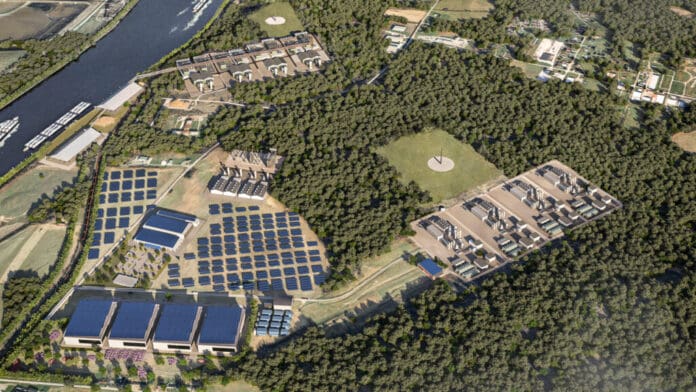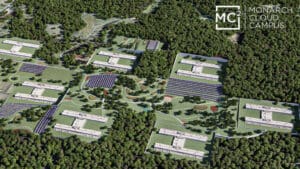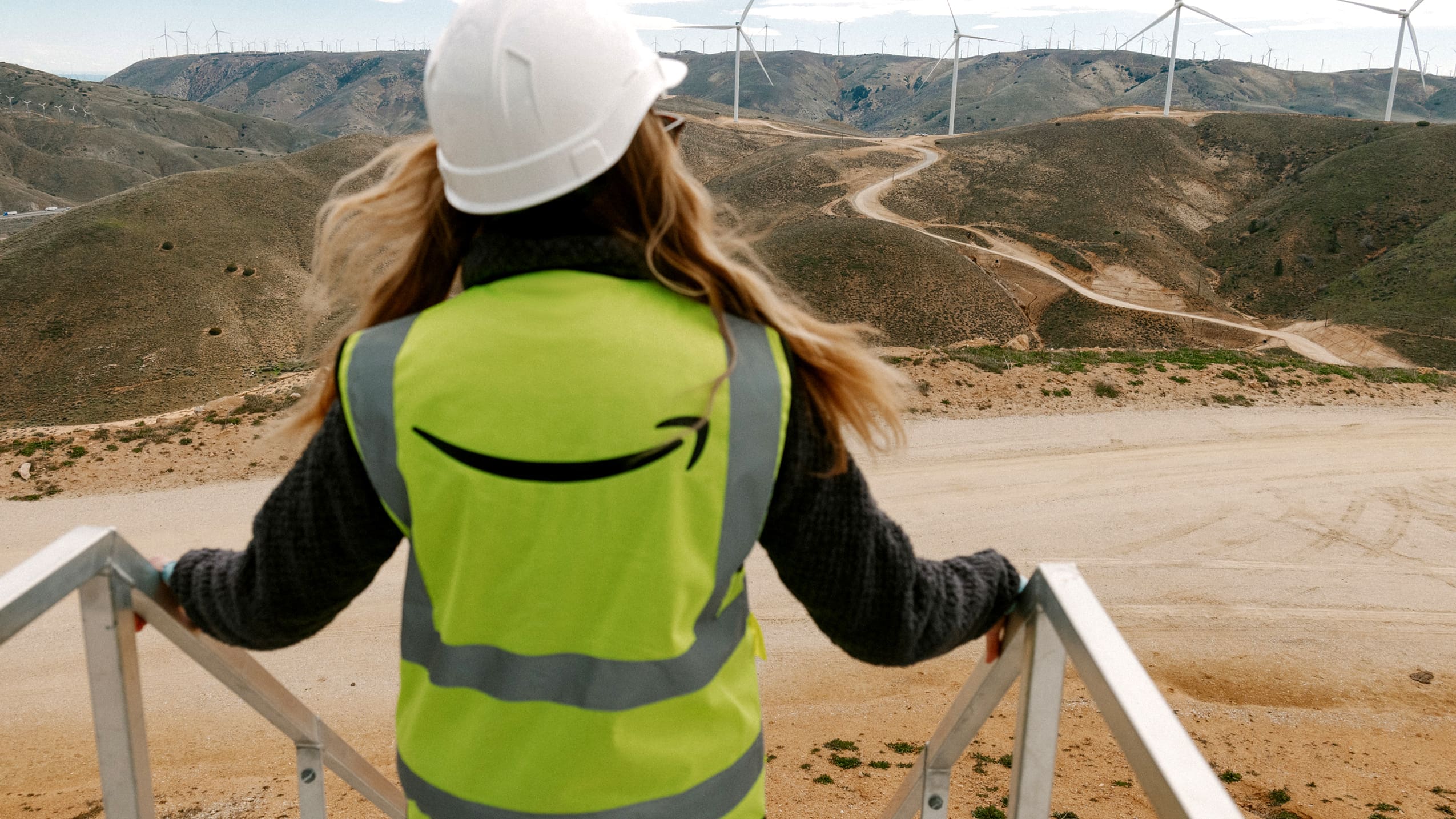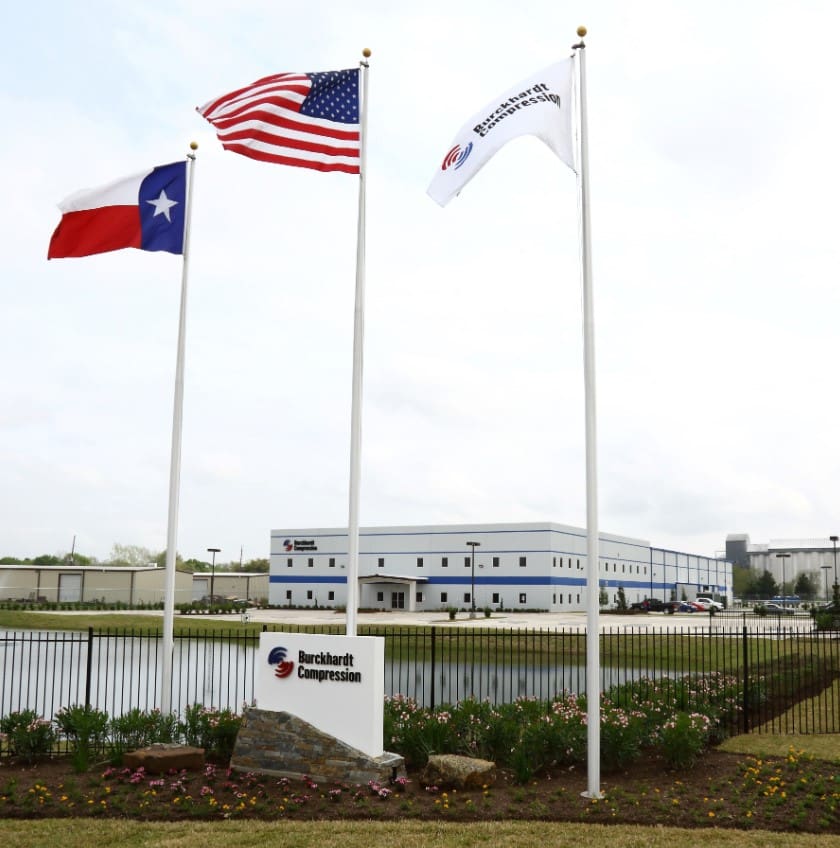
Fidelis New Energy LLC (Fidelis) has selected Mason County, West Virginia, for two projects. The first is a lifecycle carbon neutral hydrogen production facility and low-carbon microgrid, known as the Mountaineer GigaSystem (Mountaineer). The second is the Monarch Cloud Campus (Monarch) for data centers powered by net-zero hydrogen. Mountaineer will be implementing the proprietary FidelisH2 technology that enables production of hydrogen with zero lifecycle carbon emissions from a combination of natural gas, renewable energy, and carbon capture, utilization, and sequestration (CCUS).
The Mountaineer project consists of four phases with each phase producing more than 551 tons (500 tonnes) per day of net-zero carbon hydrogen at an approximate capital cost of US$2 billion per phase excluding associated investments in data centers, greenhouses, etc. The first FidelisH2 phase of the Mountaineer GigaSystem is expected to commence operations in 2028. The net-zero carbon hydrogen will be used for a variety of purposes including carbon neutral hyperscale datacenters, greenhouses, transportation, and steel production.
Making West Virginia A Leader In CCUS
The incentive package from the West Virginia Department of Economic Development enables Mountaineer to conduct additional geologic evaluations for carbon capture and sequestration (CCS) required for the permits needed to conduct CCS activities. These activities will serve as the foundation for the clean hydrogen and CCS industries in the state, providing a source of jobs and generating state revenue for carbon dioxide (CO2) volumes stored safely and permanently underground. Fidelis has a history in the CCUS space, with experience in partnering and developing carbon storage assets on the Gulf Coast and in Europe. When all four phases of the Mountaineer GigaSystem are operational, approximately 11 million tons (10 million tonnes) per year of CO2 will be permanently stored, providing more than US$100 million in annual revenue to West Virginia or US$25 million per phase each year.
“I am beyond excited that West Virginia will be the home of the Mountaineer GigaSystem and Monarch Cloud Campus,” Governor Jim Justice said. “West Virginia has a long history as an energy powerhouse for our nation, thanks to our hardworking people who know how to get the job done. And now, we’re in a great position to make the most of a new fuel — hydrogen — through this incredible project in Mason County. There’s simply no doubt that Fidelis is going to help shape the future of West Virginia in a major, major way by assisting in the commercial lift-off of some truly exciting new industries. During my time as Governor, West Virginia has seen many major economic development wins, which have contributed to the diversification of our economy and the fostering of the most business-friendly environment in the nation. Fidelis’s selection of West Virginia for their projects adds another huge win to our growing track record of success, and I thank all those involved in bringing this project to fruition.”
Fidelis and West Virginia have finalized the operating agreement which determines the terms for the targeted storage capacity and the pore space agreement establishing exclusive rights for CCS in certain areas.
Energy Transition Technologies
Fidelis has a suite of patent pending energy transition technologies that assist in the decarbonization of hard-to-abate industries. FidelisH2 is a novel hydrogen production pathway that enables lifecycle carbon neutral hydrogen from natural gas and renewable energy. Fidelis’ suite of energy transition technologies also includes H2PowerCool and CO2PowerGrow. H2PowerCool uses FidelisH2 hydrogen as a net-zero energy source to power and cool data centers, enabling carbon-neutral data centers that can be hosted on-site at Mountaineer without using offsite indirect carbon offsets or credits.
The technologies will be used by data centers at the Monarch Cloud Campus on land secured by Fidelis within the Mountaineer site and additional acreage within Mason County. Fully built out, the data center capacity could reach 1000 MW, representing more than US$5 billion in additional investment. Waste heat and a portion of the captured CO2 from FidelisH2 production and waste heat the hyperscale data centers would be used as inputs to co-located greenhouses to decarbonize and lower the cost of food production.

“By combining several proven technologies from leading providers including our FidelisH2 partners Topsoe and Babcock & Wilcox [B&W], we are able to produce lifecycle carbon free clean hydrogen at scale, without taking new technology risk,” said Bengt Jarlsjo, cofounder, president, and chief operating officer at Fidelis. Our proprietary net-zero solutions using only proven technologies are attracting significant commercial interest from hydrogen users, data center operators, and greenhouse owners. This helps the ARCH2 hub to achieve scale across the hydrogen lifecycle from production through consumption.”
In conjunction with the broader project unveiling, Fidelis also announced a letter of intent with B&W to support the evaluation, development, and delivery of BrightLoop hydrogen projects at the Mountaineer site. This targets a full build out of four hydrogen production facilities, each producing 220 tons (200 tonnes) per day of net-zero hydrogen. The BrightLoop technology enables the production of cost-competitive, clean, net-zero hydrogen from waste biomass including fallen trees, sawmill waste, and other solid fuels as well as natural gas combined with CCUS, making it a highly synergistic addition to the Mountaineer GigaSystem site.
West Virginia, ARCH2, And Federal Support
Fidelis a project development partner through Mountaineer in the Appalachian Regional Clean Hydrogen Hub (ARCH2), a regional hub bringing together private industry, state and local governments, academic and technology institutions, non-governmental organizations, and communities across the Northern Appalachian region to develop an interconnected, full value chain H2Hub solution in support of the United States Department of Energy’s vision of a national clean hydrogen network. Additionally, projects like Mountaineer and the economic impact they will bring to host states such as West Virginia would not be possible without the energy security and transition incentives passed by Congress in the Inflation Reduction Act. These provisions, including the Section 45V Production Tax Credit and 45Q Carbon Capture Tax Credits ensure the economic viability of projects that both increase energy security for the United States and incentivize energy transition.















